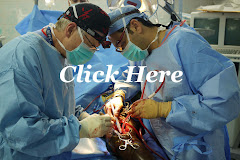Glad to note that the former Chairman of the Loma Linda University Orthopaedic Surgery Department, Dr Chris Jobe, will be participating in a symposium at the upcoming annual AAOS meeting in New Orleans.
The transition from emergency response to rebuilding and reconstruction is underway. Both the Haitian and U.S. governments are taking steps to ensure that all decisions going forward and reconstruction management are under the control of the Haitian government.
The transition from emergency response to rebuilding and reconstruction is underway. Both the Haitian and U.S. governments are taking steps to ensure that all decisions going forward and reconstruction management are under the control of the Haitian government.
According to Kevin Yeskey, MD, director of the office of preparedness and emergency operations at the U.S. Department of Health and Human Services, this week marks a transition from the immediate relief phase to a recovery and rebuilding phase in Haiti. In coordination with the government of Haiti, the U.S. government is moving to a new phase in its medical response, marked by a shift of resources toward more long-term programs.
Although the initial need for emergency treatment has passed, the need for continued medical assistance is still significant. As a result, the need for all physicians—particularly primary care physicians, surgeons, and rehabilitation specialists—will continue for months.
Fellows who still intend to volunteer in Haiti and plan to enter the country from the Dominican Republic should be aware that customs and border crossing regulations have been reinstated, and passage between the two countries is now more difficult.
As the Haitian government, non-governmental organizations, and others increase their capacity to provide medical services, they are noticing a steep decline in trauma-related cases. However, the need to match patients with appropriate care facilities continues. The most recent information we have received from AAOS Fellows on the ground follows:
Christopher Jobe, MD: You can say what the situation is or where it is going, but it is difficult to say both. You will read reports about how bad it is and you will read about how quickly it is improving. These reports are not necessarily contradictory. In fact, for a situation to improve as quickly as Haiti is improving, it has to be pretty bad to begin with.
Thomas H. Lee, MD: Because the water is not drinkable, a slight mistake brushing your teeth can lead to days of diarrhea. If you forget your bug repellant or your malarial medication, any one of numerous and growing mosquito bites would be the concern for serious illness. During one of our surgeries yesterday, safety was never more evident as one of our very own team members sat in the corner with an IV to hydrate as we addressed a child’s perforated intestine. Because there is only one sterilizer, if you forget an instrument, a scissor, a scalpel, or a screw, you will have to wait nearly 30 minutes before that critical tool is available. Forget twice and it’s an hour. An hour more of anesthesia is also an hour more for the flies to roost on your surgical field and an hour more of danger for your patient.
Benjamin Matthew Hicks, MD: I enjoyed the posts about improvising. We had no cast saw so we removed them with bone biter, osteotome, and pliers. We did not have a dependable autoclave so would sterilize instruments in big kitchen pots. We have told groups following us that we are not there to solve all the problems or fix all the fractures, just there to assist in the care of whatever needs to be done. This is not about our egos or numbers of surgeries but about empathy. The problems facing Haiti will continue for years.
Donald H. Bohay, MD: My colleagues and I from Orthopaedic Associates of Michigan appreciate you and your staff taking time to acknowledge all of our members who gave their time and experience to the victims of the devastation in Haiti. You can be proud of the group you lead.
We are indeed proud of our AAOS fellows who volunteered in Haiti. We hope everyone attending the 2010 Annual Meeting will be able to join us in acknowledging their efforts during the following events:
· Opening Ceremony, Wednesday, March 10, 4 p.m.; the president of the Haitian Society of Orthopaedics and Traumatology, Hans Larson, will be among those honored. He will also participate in the International Presidents’ Breakfast on Wednesday.
· Haiti volunteer reception, open to those who have served in Haiti, on Wednesday, March 10 at 6 p.m. in the Versailles Room of the Hilton Riverside Hotel
· Healing in Haiti, an extension of the Wounded in Action Art Exhibit, located outside the La Nouvelle Ballroom, where you can view photos and read the stories submitted by AAOS Fellows
· The Haitian Earthquake: What we saw, did, and learned, a symposium on Thursday, from 10:30 a.m. to 12:30 p.m. in room 217 of the Morial Convention Center. J. David Pitcher Jr., MD, will moderate the symposium, which also will feature Robert J. Caudle, MD; Fernando E. Vilella-Hernandez, MD; David S. Feldman, MD; Greg A. Zych, DO; Christopher M. Jobe, MD; John Lovejoy, MD; Carlos Lavernia, MD; James N. Gladstone, MD; Christopher T. Born, MD; and Hans Larsen, MD.
We urge all fellows to visit the AAOS Haiti Web page, www.aaos.org/haiti, on a regular basis to view updated information. We encourage you to read the messages posted by fellows who are on the ground or recently returned on the Haiti discussion group.






No comments:
Post a Comment